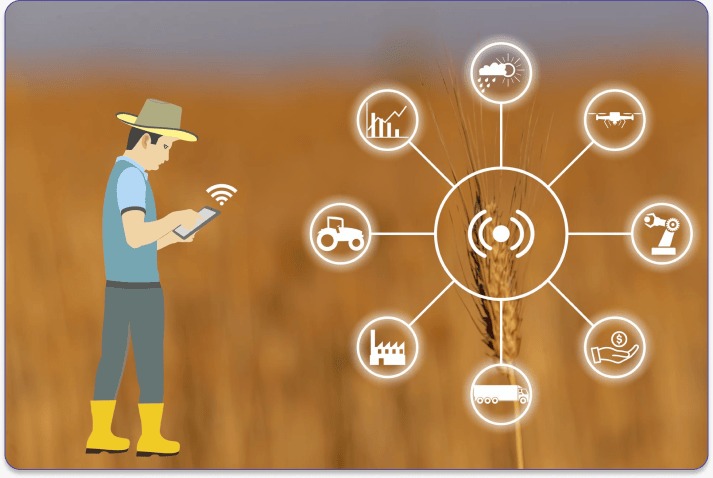Field service mobile apps have transformed the way businesses operate in the service industry. These applications streamline communication, task management, and customer interactions, leading to improved efficiency and productivity. By integrating features like real-time scheduling, GPS tracking, and mobile payment processing, these apps empower field agents to perform their jobs more effectively.
Organizations that adopt a field service mobile app can respond to customer needs faster and manage their workforce more efficiently. These tools provide instant access to vital information, enabling technicians to resolve issues on-site without delays. The capability to track job status and manage schedules in real-time significantly reduces downtime and enhances customer satisfaction.
As the demand for efficient field service solutions grows, businesses must consider how these mobile apps can impact their operations. Embracing technology can lead to better resource allocation, improved team collaboration, and ultimately, increased revenue. Investing in a field service mobile app positions companies to thrive in today’s competitive market.
Features of Field Service Mobile Apps
Field service mobile apps offer essential tools to enhance efficiency and improve service delivery. These features enable technicians to manage tasks effectively and access critical information on the go.
Work Order Management
Work order management is a core feature of field service mobile apps. It allows technicians to create, assign, and track work orders seamlessly. Users can view details such as service history, customer information, and specific tasks required.
The ability to update statuses in real-time facilitates better communication between field teams and dispatchers. Technicians can receive notifications for new assignments, ensuring they prioritize their workload effectively. This efficiency helps reduce delays and improves customer satisfaction.
Real-Time Scheduling and Dispatch
Real-time scheduling and dispatch functionalities help optimize resource allocation. With this feature, dispatchers can assign jobs based on technician availability and skill sets. This capability minimizes travel time and maximizes productivity.
Field service mobile apps offer visual mapping and calendar integrations. These tools allow for quick adjustments in the schedule, reflecting immediate changes in the field. This leads to a more responsive service model that adapts to customer needs swiftly.
Inventory and Parts Management
Inventory and parts management is vital for maintaining operational efficiency. Field service mobile apps enable technicians to check stock levels and order parts on-demand.
Users can receive alerts for low inventory, ensuring that they have the necessary materials for each job. This reduces the risk of service delays due to missing parts. Additionally, integrated barcode scanning simplifies tracking inventory, streamlining the entire process.
Mobile Access to Customer Data
Access to customer data is crucial for delivering personalized service. Field service mobile apps provide technicians with quick access to service history, contract details, and customer preferences.
This information empowers them to resolve issues more effectively and build stronger customer relationships. Technicians can record notes and observations during appointments, which are accessible for future reference. This keeps all team members informed and aligned.
On-Site Invoice Generation
On-site invoice generation simplifies the billing process. With mobile apps, technicians can create and send invoices immediately after a service is completed. This expedites the payment process and ensures accuracy in billing.
Users can customize invoices based on services rendered and parts used. Electronic payment options can also be integrated, making it convenient for customers to settle their bills on the spot. This feature enhances cash flow and customer satisfaction.
Built-In GPS and Routing
Built-in GPS and routing functionalities enhance travel efficiency for technicians. These features provide real-time navigation support, ensuring that technicians reach their destinations promptly.
Users can access traffic updates and optimize routes based on current conditions. This not only saves time but also reduces fuel costs, contributing to overall operational efficiency. Additionally, GPS tracking allows dispatchers to monitor technician locations, improving coordination and communication.
Benefits and Impacts on Service Delivery
Field service mobile apps significantly enhance service delivery by optimizing technician performance, improving customer interactions, and minimizing costs. These applications provide tools that facilitate communication and use data for informed decisions, ultimately driving efficiency.
Enhanced Technician Productivity
Field service mobile apps streamline workflows and maximize technician efficiency. By providing real-time access to job details, technicians can better prepare for their tasks. This includes checking customer history, understanding job requirements, and gathering necessary materials.
Tasks such as scheduling, time tracking, and invoicing can often be automated through these apps. Technicians spend less time on administrative duties, allowing them to focus on service delivery. As a result, the number of completed service calls within a given timeframe often increases, ultimately boosting productivity.
Improved Customer Satisfaction
Customer satisfaction is crucial in service delivery. Field service mobile apps allow technicians to update customers in real-time about job status, expected arrival times, and delays. When customers feel informed, their overall experience improves.
Additionally, these apps can collect customer feedback immediately after service completion. Technicians can address concerns swiftly, fostering a sense of trust. The enhanced communication and responsiveness lead to higher customer retention rates and positive word-of-mouth referrals.
Reduced Operational Costs
Operational costs often decline with the implementation of field service mobile apps. By automating routine tasks, businesses reduce the need for extensive administrative staff. Moreover, accurate scheduling minimizes travel time and fuel expenses.
Increased productivity also impacts the bottom line. Fewer missed appointments and improved first-time fix rates reduce the need for repeat visits. Companies can allocate resources more effectively, leading to significant cost savings over time.
Streamlined Communication
Efficient communication is a cornerstone of effective service delivery. Field service mobile apps foster communication among technicians, dispatchers, and customers. This interconnectedness ensures that everyone remains informed about job statuses and changes.
Cloud-based solutions allow seamless information sharing. Technicians can access updated schematics, manuals, and troubleshooting guides on-site. This access reduces the time spent searching for information and enhances the quality of service provided.
Data-Driven Decision Making
Field service mobile apps generate valuable data that informs strategic decisions. By analyzing metrics such as response times, service quality, and technician performance, companies can identify areas for improvement.
This data allows managers to make informed decisions regarding training, process adjustments, and resource allocation. Predictive analytics can also forecast potential issues and customer needs, enabling proactive service measures. Utilizing data effectively leads to enhanced operational efficiency and improved service delivery.










